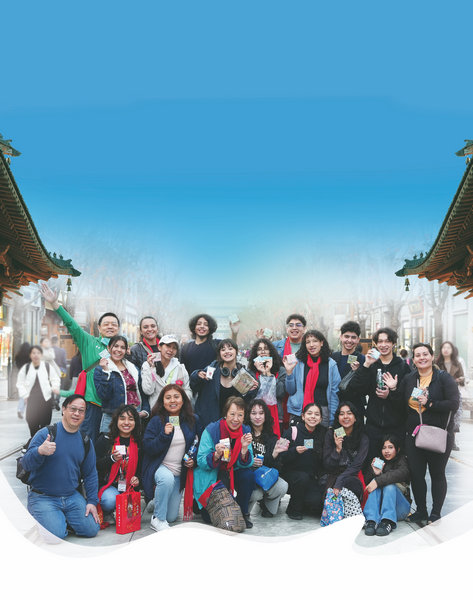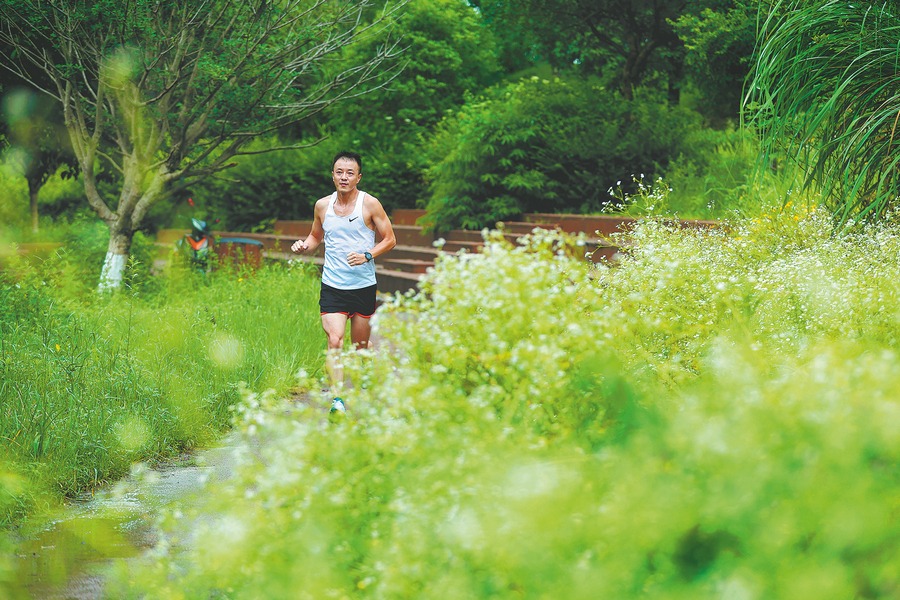A crash course in cultural exchanges
How one simple exchange program grew into a permanent wellspring of intercultural benefits, Li Xinran reports.


From March 24 to 31, a group of 15 students from Vaughn Next Century Learning Center, a charter school located in San Fernando, California, United States, embarked on an educational and cultural exchange journey in three cities in China: Beijing, Suzhou, and Shanghai.
For Ian Sierra, a 15-year-old 10th grader from Vaughn, this was his first time traveling abroad, and he was both nervous and excited.
"I felt that if I messed up a bit, it would greatly influence the image of the whole group," he said. "When I interacted with people in China, I acted as a representative of my school, California, and my country."
Despite his initial apprehensions, Sierra made a pact with his friends that they would broaden their horizons, try new things, and take the initiative to interact with people.
Michael Sosa, 17, a senior from Vaughn, also started the trip with an open mind. "I didn't have a specific image or expectations of China before my arrival. Instead, I saw myself as a blank canvas that I will paint on as I explore the country."
Both Sierra and Sosa discovered new culinary delights. In Beijing, Sierra bravely sampled douzhi, a fermented soybean milk known for challenging even the locals' taste buds, but he finished three bowls without flinching.
Sosa had hot pot for the first time. "One of the hot pot broths was spicy, but I really enjoyed it, probably due to my Mexican background. I could even eat spicier food than my homestay buddy, whose family is from Hunan province," Sosa said.
Sierra found the highlight of their trip in the exchange and homestay program at Beijing No.4 High School International Campus (BHSFIC), where they spent over two days.
"My homestay partner, his parents, fellow Chinese students, and everyone else were very welcoming and sociable. I felt like I had become part of a tight-knit and interconnected community," he said.
Sierra was also excited to explore the differences between the educational systems of the two countries.
"I tried out table tennis after classes ended, and the Chinese students played like pros," he said. "In the States, students usually engage in sports through clubs and sports teams. Here at BHSFIC, they have a ping-pong table in the lobby, and students can squeeze in some time for table tennis during recess. Sports are more recreational here, which I found quite interesting."
The exchange of learning was mutual. Li Weiyou, a 15-year-old student from BHSFIC and Sosa's homestay partner, found himself pleasantly surprised by his American counterpart.
"Before I knew Michael, I thought American students were more focused on personal development than academics. But Michael proved otherwise; he thrives in both, as he has taken multiple AP courses (advanced high school courses that earn college credits) and also participated in a dozen activities and clubs," said Li.
Ian Chan, 15, a sophomore from Vaughn, was also impressed by his homestay partner, Fang Xinghe, a student at BHSFIC. "He didn't appear to be an outspoken person, but he opened up to me, sharing things about his life in China and was eager to learn about my life and culture," said Chan. "I also discovered that Fang and his classmates are very good at learning independently and organizing clubs themselves."
Yvonne Chan, founder and principal of Vaughn, firmly believes in the importance of language acquisition. In fact, Vaughn has incorporated Mandarin into its curriculum.
"Languages are a basic requirement for good communication, which even includes sign language and body language," she said.
Hou Yuxuan, 15, a 10th grader from BHSFIC, agreed. "My dad can speak Japanese and so can my homestay partner Sammy. They would communicate in Japanese while I talked to Sammy in Chinese and English. I think having a shared language helped her adjust and bond with us more quickly," said Hou.
Looking back on their time in China, many Vaughn students felt that they still have a long way to go in learning Mandarin.
"I've taken classes at school, but it was mostly textbook Chinese. During my visit, I picked up so many expressions used in daily conversation contexts, like 'dui', which is similar to saying 'yeah' in English," said Sierra.
Both Vaughn and BHSFIC students benefited from the experience, realizing the limitations of virtual knowledge compared to firsthand experiences.
"As a generation that has grown up with technology and media, we have access to information about other countries online. However, some things can only be grasped in person when you experience them yourself," said Ian Chan. "If I hadn't taken this trip, I wouldn't have learned about the high school life of Chinese students and how welcoming and open-minded Chinese people are."
For Sierra, the weeklong trip even impacted his future career aspirations. "I used to consider becoming a math teacher in the States. Now I'm thinking about teaching English in Beijing or Shanghai."
Gong Siyong, 16, a student at BHSFIC and Sierra's homestay partner, said that an immersive exchange experience is very different from simply touring a country.
"Through our time together, I've come to realize that students from both schools have their unique personalities and outstanding qualities. We have more similarities than differences, and those differences can be embraced and understood," said Gong.
Though Sierra has returned to the US, he and Gong still keep in touch through WeChat. "I gave Sierra a set of building blocks with traditional Chinese elements as a gift, and he sent me a photo of the finished product just a few days ago," said Gong.
"The students will stay in contact. You start with the young people who are equipped with the right disposition, and those kids who carry a good disposition toward collaboration may very well become world leaders someday," said Yvonne Chan.





































